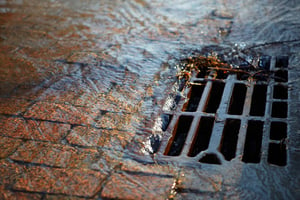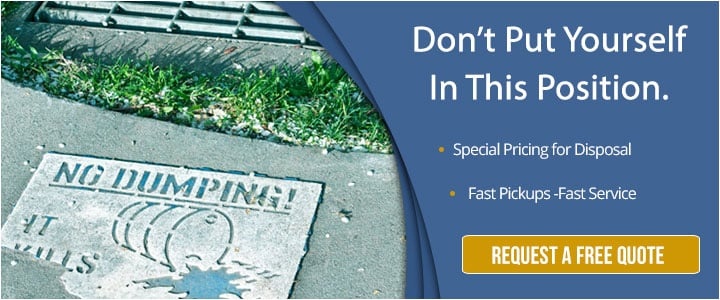Neutralizing Chemicals | Is It Legal?
Any time employees have access to hazardous chemicals, there is a potential for injury and misuse, especially when used chemicals need to be neutralized and disposed of.
Grabbing old chemicals and disposing of their contents by throwing them down the drain is very often the solution that many people employ. They typically think that there is no real danger with this sort of practice.
Phrases such as, “I mean how much harm can it really cause?” or “I used water to dilute the chemicals before I dumped them,” are statements we have heard many times.
What Constitutes Treatment of a Chemical?
Treatment is any method, technique, or process which changes or is designed to change the physical, chemical, or biological character or composition of any hazardous waste or any constituent contained within the hazardous waste, or removes or reduces its harmful properties or characteristics for any purpose including, but not limited to, pH adjustment, removal or reduction of metals, oil/water separation, precipitation, evaporation, or reduction in volume. The governing laws are the Health and Safety Code (HSC) and 22 CCR. (Wow, don't you love how they write this stuff!)
Can You Legally Neutralize Your Own Chemicals?
Through the Resource Conservation and Recovery Act (RCRA) the Environmental Protection Agency was directed to regulate all aspects of hazardous waste.
With respect to neutralizing hazardous chemicals for disposal, any company involved in this process must be certified to perform such a task and be given a tiered permit to neutralize their own chemicals. It is illegal for any business to attempt to neutralize their own hazardous chemicals without such a permit.
The old saying, “The solution to pollution is dilution,” is illegal!
The permit must be established with several government agencies that are responsible for regulating the treatment process. Agencies like:
- DTSC
- LACFD
- Cal EPA
- State Water Resource Board
- National Pollutant Discharge Elimination System
Any neutralizing of hazardous chemicals must be reported to these agencies to ensure the process has been performed correctly and there is no danger to the environment and public safety.
Why Can’t I Just Throw the Chemicals Away?
Let’s put the legal issue aside for now. If you did not know it was illegal to throw away hazardous chemicals either in a dumpster or down the drain, then you probably do now.
It’s easy to say to an employee just dilute the chemical with water and throw in down the drain. It’s expedient and it saves you a little money. However, do your employees know exactly what kind of chemical they are dealing with? How old is the chemical? What kind of chemical do you need to help neutralize the used one? How much of the neutralizing chemicals should you use?
Let’s say you have a corrosive chemical that needs to be disposed of. If you do not use the right base to neutralize it or use the wrong concentration, then one or more of the following conditions can occur:
- Explosion
- Poisonous Gases Released
- Excessive Pressure in Vessels
- Dangerous Polymerization of Hazardous Materials
Risk Reward
How much money are you really saving by throwing dangerous chemicals down the drain? In a related article, called the 5 Silly Mistakes That Can Lead to Hazardous Waste Fines, the number one mistake businesses make is dumping hazardous waste into the sewer system. However, sewer systems these days have sophisticated sensor equipment installed that can detect the source of the contamination.
The risk of being caught and facing substantial hazardous waste fines, like the City of San Luis Obispo did, is not worth the risk!
The only reward you may feel you get from the practice of disposing of waste in a dumpster or sewer system is the few busks you save and the perceived hassle of contacting a hazardous waste company to take care of it for you.
Always remember, when it comes to hazardous waste disposal someone is always watching!


Comment